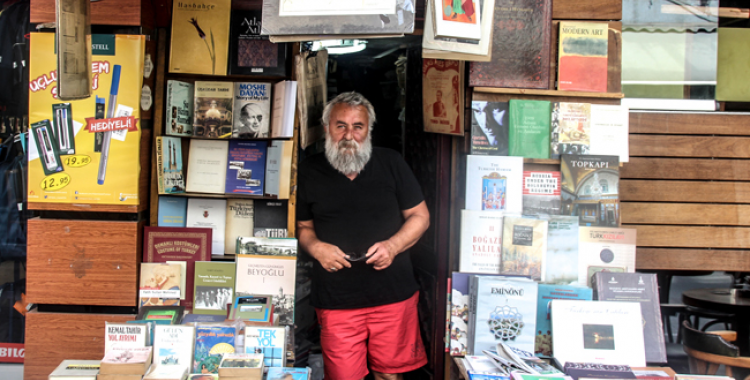Best Books Set in Istanbul by Turkish Writers

Best Books Set in Istanbul by Turkish Writers
*The Birds Have Also Gone, Yasar Kemal
A short, beautiful novel from one of Turkey's best-loved writers and lovingly translated by his wife, it centres on the idea of gaining grace through kindness to all living things by the old practice of releasing birds captured specifically for the purpose.
"Taksim is the most populous part of the town. Wouldn't there be some, among the crowds that always throng the square, just a few with still a modicum of humanity who, for a trifling sum, will take pride and joy in setting little birds free. Such a sight it is when those birds soar joyously up into the sky …"
*Istanbul Memories of a City, Orhan Pamuk
The Nobel Prize winner recalls the Istanbul of his youth. Atmospheric black-and-white photos contribute to his depiction of hüzün ― a particularly Turkish form of melancholy.
"The beauty I see in Süleymaniye Mosque is in its lines, in the elegant space beneath its dome … Even four hundred years after it was built, I can look at Süleymaniye and see a mosque still standing in its entirety, just as it did, and see it as it was meant to be seen."
*A Mind at Peace, Ahmet Hamdi Tanpinar
Considered by Orhan Pamuk to be the greatest novel ever written about Istanbul, this is a lyrical tribute to both the city and human love.
"Çadircilar Street was bewildering as always. On the ground before a shop whose grate usually remained shuttered, waiting for who knows what, were a Russian-made samovar spigot, a doorknob, the remnants of a lady's mother-of-pearl fan so much the fashion thirty years ago, a few random parts belonging perhaps to a largish clock or gramophone …”
*The Bastard of Istanbul, Elif Shafak
From one of Turkey's most popular writers, the bestseller that is by turns magical, informative and heart-breaking as it brings together the turbulent past and the complex present.
"The tavern was a stylish but convivial place near the Flower Passage. As soon as they sat, two waiters appeared with a cart of mezes … 'yalanci sarma, tourshi, patlijan, topik, enginar,' Armanoush started naming the dishes the waiters were leaving on the table."
*The Seagulls’ Wedding, Merih Gunay
This short novel is set in the Istanbul of the 2000's, a world where the lives of ordinary law-abiding people are turned upside down by terrorism, earthquakes, wars and macro-economic financial crises. It is a world where people have forgotten to act like human beings and only look after themselves.
In the words of the hero himself, in the space of one month he has "lost his father, gone bankrupt, had his goods and chattels taken away from him, lost his home, been treated like a pervert, almost died of hunger and been abandoned by his family".
Our hero has opened a gift shop in the historic part of Istanbul, after years of hard, soul-destroying labor in hotels where he has been at the beck and call of unscrupulous, penny-pinching employers. The father he loses has spent most of his miserable life working long hours in similarly appalling conditions and the situation of the distant relative who pays him an unexpected visit and sees his abandoned, bankrupt state is little different.
Alienation and lovelessness are other underlying themes of this short novel. In it we see close family members who scarcely speak to each other, wives deserting their husbands and husbands deserting their wives and a funeral attended by a mere handful of people. There is ingratitude, too, in the actions of the hero as he pursues the beautiful Natalie, turning his back emotionally on her kindhearted but plain sister.
Among the constantly recurring themes in "The Seagulls' Wedding" are the effects of privatisation and government cuts on the lives of working men with families to support and the terrible guilt they feel when they cannot bring home enough money to pay the bills, a guilt which in some cases drives them to become vagrants. Children are forced to drop out of school and take up menial work just so that families can make ends meet.
Although the main character is somewhat unlikeable, this is an engaging story of his Don Quixote-like approach to life.